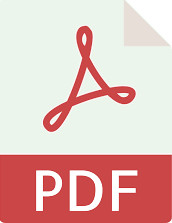16-20.05.2022, 09:00-Scuola Estiva Speech Matters
16-20.05.2022, 09:00-Scuola Estiva Speech Matters

Data inizio: 16/05/2022
Data fine: 20/05/2022
Ora: 9:00
Location Modalità mista (da definire)
 -Scarica il programma della Scuola Estiva
-Scarica il programma della Scuola Estiva
Responsabili
Prof.ssa Miriam Voghera Università di Salerno
Prof. Claudio Iacobini Università di Salerno
Presentazione della scuola estiva The systematic study of spoken language has not, until recently, been associated with models that focus on describing ‘grammar’, which are generally based on the written language. The bulk of such models has not been particularly concerned with analyzing spoken data beyond noting, occasionally, that a specific pattern may have different instantiations in spoken language from what it has in 'standard' grammar. This bias away from spoken language, however, reflects more the traditional understanding of what a grammarian ought to study than any intrinsic limitation of grammatical models with respect to their applicability to the study of spoken data and to larger stretches of discourse as the domain of analysis. As a result, the insights stemming from research on spoken language data in fields such as sociolinguistics, interactional linguistics and discourse analysis are not generally subsumed by models of human communication, although they have the potential to change our view of grammar, with crucial consequences also for speech technologies. The success of the latter, indeed, crucially depends on the creation of realistic training data appropriate to the task that is to be carried out, and on their appropriate modelling. When we speak, indeed, not every linguistic choice is equally probable. As speakers, we tend to use structures and patterns that better fit the needs of the spoken modality because of their efficiency or social adequacy. This determines the cross-linguistic ubiquity of features that can be considered as modality-specific constraints, i.e. features occurring in spoken texts of different languages. These modality-specific constants do not only depend on the use of the vocal-auditory channel, but also on the complex semiotic and communicative conditions in which spoken texts are typically produced, and consist in discourse or linguistic features with a high yield factor, i.e. elements optimized to facilitate the production and the reception of speech. The aim of this School is to bring together scholars working on spoken language data from different angles, with a view to building bridges among different fields such as linguistic typology, sociolinguistics, discourse analysis, prosodic analysis, and speech technologies. The novelty of the school lies precisely in this effort to paving the way for a more fruitful interaction among disciplinary fields that share the object of analysis (spoken language) but approach it with different methodologies and with different goals in mind, and that do not often cross-fertilize each other.
Corsi The school will comprise five courses: Course 1: "From speech to grammar" (Prof. Miriam Voghera, Università di Salerno). This course focuses on the properties of spoken communication, discussing aspects related to linguistic production, reception and perception and showing how the phylogenetical and ontogenetical primacy of speech is not without consequences for the general configuration of more adequate models of grammar. Course 2: "Doing typology with spoken language corpora: universal and language-specific aspects of human interaction" (Prof. Stephen A. Levinson, Max Planck Institute for Psycholinguistics, Nijmegen). This course focuses on cross-linguistic variation in spontaneously spoken languages, as a window into the cultural, cognitive-neural and physiological-articulatory bases of the human language production system. Course 3: "Speech as a symbolic resource in different types of speaker communities" (Prof. Miriam Meyerhoff, All Souls College, University of Oxford). This course focuses on field methods in the collection and interpretation of spoken data, highlighting the challenges posed by the different types of speaker communities (e.g. multilingual communities; post-colonial communities; communities characterized by language contact; etc.) and the role of language as a symbolic resource in the construction of gendered and other social identities. Course 4: "Prosody, gesture, and conversation: multiple communicative systems and the organization of interaction" (Prof. Margaret Zellers, Universität Kiel). This course will focus on prosody and gestures and on their relevance in both speech production and perception, as cues guiding the addressee’s interpretation and reconstruction of the intended meaning. Course 5: "Methods of speech synthesis with an emphasis on articulatory synthesis" (Prof. Peter Birkholz, Technische Universität Dresden). This course focuses on speech modeling and speech technologies, discussing the state of the art in the fields of speech synthesis, simulation of the vocal system, and modeling of speaker identity and highlighting the strict interaction and dialogue between theoretical models and applications.
Laboratori Besides the five courses, three laboratories are also planned. The laboratories will focus on specific applicative aspects, allowing the students to work first-hand on topics discussed during the courses and to learn the methodological and practical aspects of the treatment of spoken data: Lab 1: The use of softwares in language documentation: transcribing and annotating spoken corpora (Prof. Eugenio Goria, Università di Torino); Lab 2: Doing prosodic analysis – An introduction (Prof. Eugenio Goria, Università di Torino); Lab 3: Identifying and describing procedural items in discourse: the case of discourse markers (Prof. Ilaria Fiorentini, Università di Pavia; Prof. Andrea Sansò, Università dell’Insubria).
Relatore / relatrice
Claudio IACOBINI
Studi linguistici